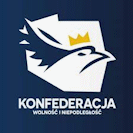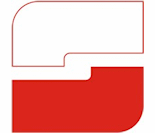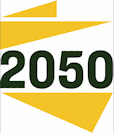Poland - Political Parties
 The transformations of 1989 brought fundamental change to the political and party system in Poland. The Polish United Workers' Party [PZPR], which had previously enjoyed hegemony for its Communist ideology, was obliged to relinquish this status in favor of political pluralism. Initially, the political divide was a clear-cut line between groups and parties that emerged from the Solidarity movement, and the post-Communist groups. Currently, this division has become somewhat vaguer and of lesser effect, and in many ways the Polish political scene now resembles European and world patterns.
The transformations of 1989 brought fundamental change to the political and party system in Poland. The Polish United Workers' Party [PZPR], which had previously enjoyed hegemony for its Communist ideology, was obliged to relinquish this status in favor of political pluralism. Initially, the political divide was a clear-cut line between groups and parties that emerged from the Solidarity movement, and the post-Communist groups. Currently, this division has become somewhat vaguer and of lesser effect, and in many ways the Polish political scene now resembles European and world patterns.
By late 2000 the ruling Solidarity Election Action (AWS) split, as the three political parties that constituted AWS signed a federation agreement according to the project presented by the Sejm Speaker Maciej Plazynski. Plazynski proposed 10 November 2000 as the deadline for creating a federation of four equal organisations that were included in AWS: Conservative Peasant Party (SKL), the Christian National Union (ZChN), the Polish Party of Christian Democrats (PPChD), and AWS Social Movement (RS AWS).
In October 2007 Solidarity leader Marian Krzaklewski announced the formation of a new political party by Solidarity Election Action (AWS), the victorious grouping in the parliamentary elections. Krzaklewski said he believed the new party would be joined by union supporters and activists, members of groups whose programs are compatible with that of AWS, and unaffiliated people. He also said he hoped most of the nearly 30 parties belonging to AWS would join.
The political parties in Poland represent a broad range of public consensus, with groups which may be classified as social-democratic, liberal, conservative, national, rural-interest, or populist. There are also radical groups with a negligible amount of public sympathy. Some observers of the Polish political scene have endevored to define a traditional division into left-wing, right-wing, and centre, but in practice very few of the existing parties may be accurately described in terms of such definitions.
 | The Law and Justice Party (Prawo i Sprawiedliwosc, PiS) is one of the two major political forces in the country. Established in 2001 by twin brothers Lech and Jaroslaw Kaczynski, PiS is a right-wing party which cherishes the traditions of independence and derives from the Solidarity movement of the 1980s. PiS represents a right-wing conservative and nationalistic electorate which favors a traditional social order, a free-market economy, a strong and wholesome state, the principle of law and order and a resolute fight against crime and corruption. PiS was created in 2001. This conservative and nationalistic party, currently one of the dominant forces in Polish politics. It holds populist, Eurosceptic, and anti-immigration positions and is known for promoting traditional Catholic values in line with Poland's predominantly Catholic population. The Law and Justice Party first came to power in 2005, but its tenure was short-lived. It returned to power in 2015, initiating a series of controversial reforms, especially in the areas of the judiciary and media, which have been perceived by some as a threat to the rule of law and democratic norms, leading to tensions with the European Union. The party's policies also include generous social welfare measures, like the "500+" child benefit program, which have proven popular domestically. |
 | The Civic Platform (Polish: Platforma Obywatelska, PO) is one of the main political parties in Poland. It was established in 2001 as a center-right, liberal conservative political party by Andrzej Olechowski, Donald Tusk, and Maciej Plazynski (then Speaker of the Senate), former members of the Democratic Union (Unia Demokratyczna--UD) and Solidarity Election Action (AWS) parties. The Citizens' Platform is a group which represents the liberal electorate, private entrepreneurs and business circles, as well as those who want a robust state based on a free-market economy and the principle of competition. This liberal conservative and pro-European Union party was the ruling party in Poland from 2007 to 2015. with Donald Tusk as Prime Minister, followed by Ewa Kopacz. During this time, the party implemented a number of significant reforms and steered Poland through the 2008 global financial crisis relatively unscathed. However, the party lost the parliamentary elections in 2015 to the right-wing Law and Justice party. Key issues for the Civic Platform include strengthening the rule of law, ensuring independence of the judiciary, combating climate change, promoting equal rights, and continuing to integrate Poland into the European Union. It has been associated with pro-European Union stances, economic liberalism, and progressive social policies. |
 | Confederation Liberty and Independence (Konfederacja Wolnosc i Niepodleglosc): A far-right political alliance known for its nationalist, Eurosceptic, and libertarian views. Thirty-six-year-old Slawomir Mentzen has changed the image and fortunes of Poland's right-wing, libertarian Confederation alliance just in time for the fall 2023 parliamentary election. His political program, which he calls the "Constitution of Freedom," is simple: One tax rate (12%) for all, tax relief for private entrepreneurs, the abolition of obligatory pension contributions and health insurance, and fierce criticism of the European Union. When the alliance was founded in 2019, Mentzen said that its aim was to create "a Poland without Jews, homosexuals, abortion, taxes and the European Union." Today, he rarely makes public statements like this |
 | The Democratic Left Alliance (Polish: Sojusz Lewicy Demokratycznej, SLD) is a social-democratic political party that traces its origins to the post-communist left. Formed in 1991, the party had its roots in the Union of the Democratic Left, which was made up of various left-wing parties and organizations, including the successor to the former communist Polish United Workers' Party. The Party was established in 1999 from a coalition of the same name. The party has held power in the past, most notably from 2001-2005 under the leadership of Prime Minister Leszek Miller. Alliance participated in the 2007 elections with the Democratic Party, the Polish Social Democracy and the Labour Union under the name of the Left and Democrats (LiD) movement, while now it has it's own parliamentary club - the Left. The Left (Lewica) is a political alliance consisting of several left-wing parties, including the Democratic Left Alliance (Sojusz Lewicy Demokratycznej, SLD), Spring (Wiosna), and Together (Razem). The Alliance represents social democratic outlook both in the social and economic area. The SLD generally favored progressive social policies and supports greater involvement and integration with the European Union. It has a pro-worker stance and supports social justice, civil rights, and the welfare state. However, the party has seen diminished influence in Polish politics, especially with the rise of the right-wing Law and Justice party and the center-right Civic Platform. |
 | The Polish Peasants' Party (PSL) is a modern rural-interest party; it sees itself as a center party. It has been a member of the government coalition with the Democratic Left Alliance and the Labour Union. PSL represents the interests of farmers and agricultural employees, residents of rural areas and country towns. The PSL looks back to the political traditions of the large agrarian communities in Poland before the Second World War and Stanislaw Mikolajczyk's PSL, which was the only independent political party tolerated in a brief spell from 1945 to 1947. Polish Coalition (Koalicja Polska) is a political alliance dominated by the Polish People's Party (Polskie Stronnictwo Ludowe, PSL), a center-right, agrarian party. |
 | Modern (Nowoczesna): A liberal and pro-European party, though as of 2021 it had less influence than some of the other parties. On May 31, 2015. Six thousand people come to the Founding Congress of Nowoczesna. Everyone wants change. It has been 26 years since the fall of communism, they say. "It worked, but now it's time for more." People write down their demands and pin them to the wall. From these small pieces of paper, the name "Nowoczesna" was created, " We want a more European Poland and a clear bet on the European Union. Fast entry into the euro zone. Free market and economic policy that will suppress the high prices. Increased freedoms and rights. Taking safety, army, education, environment and health seriously. And to hold those in power accountable for destroying the judiciary and other abuses." |
 | Poland 2050 (Polska 2050): A political movement led by Szymon Holownia, a former presidential candidate. This movement positions itself as centrist and non-partisan. In 2020 Using only civic support, Szymon Holownia won third place in the elections. Uninterruptedly, from the beginning of the war, he was involved in helping Ukraine, first at the border and railway stations, today preparing support for the combatants, e.g. trench candles. The chairman of Poland 2050, Szymona Holownia, proposed the creation of a system against nepotism and corruption. On 27 April 2023, Szymona Holownia's Poland 2050 signed an agreement on a joint start in the parliamentary elections with the Polish People's Party. |
|
NEWSLETTER
|
| Join the GlobalSecurity.org mailing list |
|
|
|

